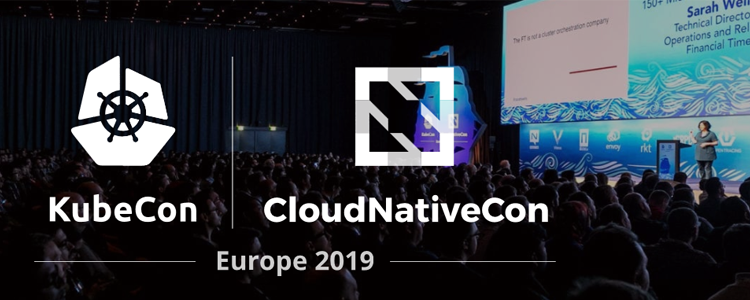A little over a week ago, KubeCon and CloudNativeCon happened and our independent Roaring Roving Reporter Rubik Dave came back from Barcelona with a comprehensive report.

Podcast: Play in new window | Download (Duration: 47:07 — 32.6MB)
Subscribe: Apple Podcasts | Spotify | RSS | More
Kubernetes
As the kubernetes.io webpage tells us: “Kubernetes (K8s) is an open-source system for automating deployment, scaling, and management of containerized applications.”
As we discuss in the episode, Kubernetes forms a kind of middleware layer that performs orchestration of light weight docker containers. To be sure, you can use other container technologies but Docker (and its companion project Moby) are what is most often used with Kubernetes.
The biggest advantage of Kubernetes, I believe, is how it has standardized the way a micro services framework based on docker container instances can be deployed and managed. There have been a myriad of other approaches that tried to solve that problem (and Dave gives a rather exhaustive list in the episode), Kubernetes has emerged to be the best supported by the community.
KubeCon
And that is where KubeCon comes in: there are other, more developer oriented conferences, but KubeCon is perhaps the largest event for Kubernetes consumers. Details on this years event are available at the KubeCon | CloudNativeCon Europe 2019 website.
If you missed this years installment, take a note that next years Europe event will be in Amsterdam, March 30th to April 2nd. And if the American continent is more practical, you can join the community at the San Diego venue, November 18th to 21st.
CloudNativeCon
KubeCon ran together with the CloudNativeCon for as long as I can figure out and since Kubernetes is one of the larger “CNCF graduated” projects, that is not surprising.
It also makes sense since micro services architectures are an excellent fit for cloud based deployments so a lot of the Kubernetes community is likely to also be a member of the “cloud crowd”.
Now, reading the CloudNative website, their charter in particular, it does seems to see it’s purpose in a similar vein as the Apache Foundation does. However, the CloudNative folk recommend the projects under it’s wings to use the Apache 2.0 license so they certainly don’t appear to be in any kind of direct competition here… I think I feel a future podcast episode announcing itself! 😀
Please use the Contact Form on this blog or our twitter feed to send us your questions, or to suggest future episode topics you would like us to cover.